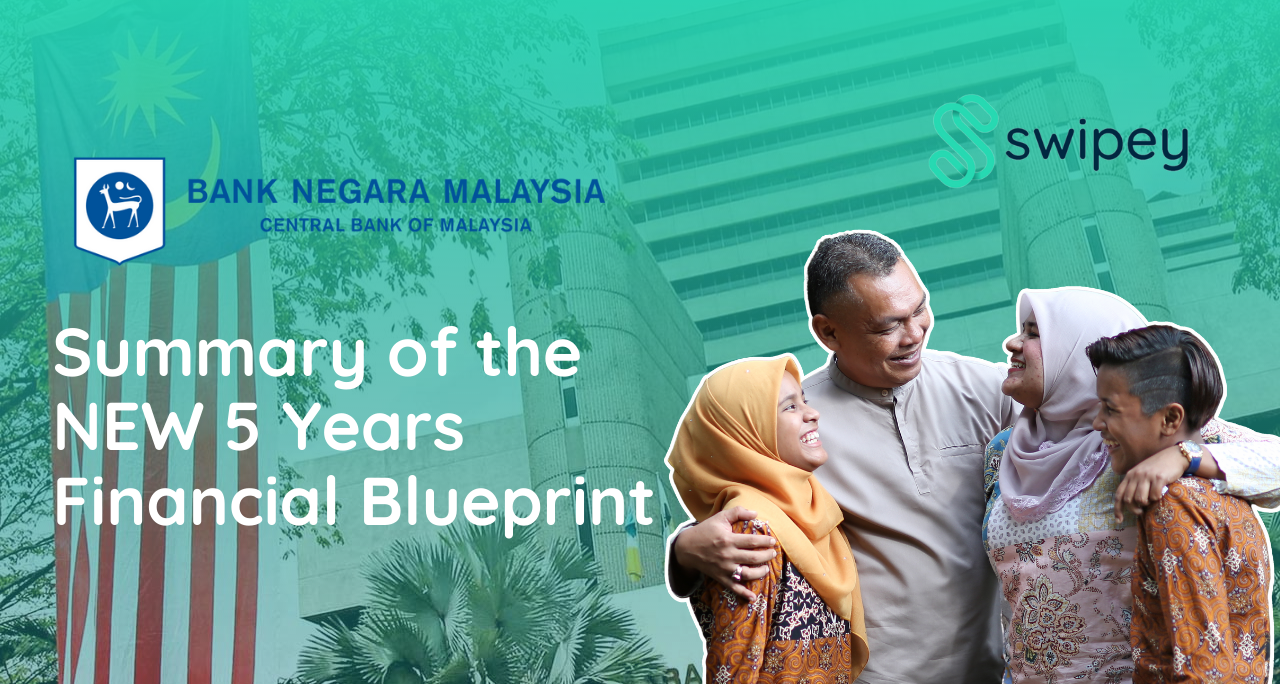Malaysia’s 5-year Financial Sector Blueprint was revealed during the launch of My Fintech Week in Q1 2022. In the opening speech to over 3000 participants, Finance Minister YB Tengku Zafrul and the Governor of Bank Negara Tan Sri Nor Shamsiah reassured the masses that the financial sector plays an important role by supporting and uplifting individuals and well as businesses.
The extensive blueprint outlines 4 major trends that are likely to shape the financial landscape in the upcoming years. These include;
- Uncertain global economic conditions,
- Risk of financial exclusion amid ageing population,
- Evolution of technology
- Green economy narrative
These factors will likely place the nation’s current financial infrastructure through a stress test in the years to come. To prepare for this, BNM has zeroed in on three broad themes coupled with key targets and milestones laid out to be achieved by the year 2026 which includes
- Financial accessibility.
- Financial sustainability.
- Financial transformation.
Economic Transformation
In order to achieve the targets and milestones set out in the blueprint, the government is committed to act upon key pillars that were highlighted in the report. The first key pillar is to devote resources in order to smoothly transform the local economy into a developed one.
To achieve this goal, the country needs to open the door to sustainable economic recovery. This involves businesses adapting to the new norms and implementing structural changes to strengthen business resiliency. A supportive credit guarantee system and increased security in financing would give investors the confidence to provide liquidity to local businesses. With increased liquidity comes the need to manage it efficiently and sustainably, ensuring not too much time and resources go into managing and reconciling finances.
Financial wellbeing of household and business
The financial wellbeing of the country is also a huge focus of this blueprint, focusing not only households, but businesses as well. One of the key things outlined is financial education, which is important for businesses especially since the pandemic. To promote responsible and efficient spending, your finance team needs to have a clear overview of all company expenses. It shouldn’t be a burden just to zero in on past transactions.
There are various tools and technologies that promote more efficient financial management. However, without proper education one will never be able to fully utilise the benefits these tools have to offer. With greater education, then comes greater financial access. This includes allowing businesses to tap into their finances with convenience, whether it’s through a mobile phone or desktop. No more going to the ATM to withdraw cash.
Advance digitalisation of the financial sector
The digitalisation of the financial sector is the third key initiative to advancing our nation’s financial infrastructure. In order to accommodate businesses that rely heavily on technology for their core operations, a conducive digital landscape is required.
In hopes of supporting a vibrant and innovative financial landscape, the area of digital payments is the main focus of the government. In recent years, there have been large barriers to qualify for a dedicated payment solution in Malaysia. The issuance of physical and virtual corporate cards comes with hefty pre-requisites, typically unfriendly to an SME. In modern times, new solutions exist in the regional and local market which provides dedicated payment solutions to SMEs that facilitate both physical and digital payments.
Position the financial system to facilitate an orderly transition to a greener economy
Countries around the world have pledged their efforts into building and sustaining a greener economy. Malaysia is too on that path, specifically in the financial system as outlined in the blueprint. Efforts such as mandatory disclosures of climate risks and climate stress tests for the financial industry force businesses to focus on the consequences of their operation to the environment.
One way to largely reduce your carbon footprint is to digitise your business’ financial management process. The traditional method of keeping receipts and printing financial reports uses up a lot of paper, which in turn has adverse effects on the environment. A digital first method where all your expenses and reports are done online would greatly reduce the carbon footprint of a business.
For more information on the 5-year digital blueprint, you can download it here: https://bit.ly/BNMBlueprint




